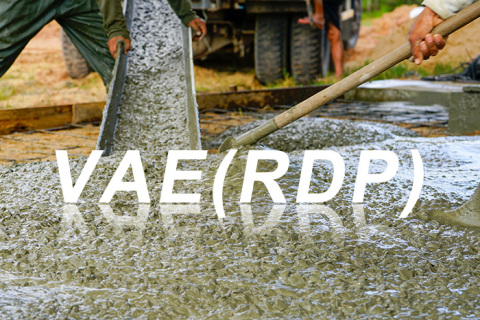
- Home
- >
News
In modern flooring systems, Self-Leveling Mortar must meet high requirements for smoothness, durability, and structural stability. However, traditional cement-based formulations often face problems such as insufficient Adhesion Strength, shrinkage cracking, and surface dusting.
Redispersible Polymer Powder (RDP), a high-performance VAE-based additive, has emerged as the definitive solution to these challenges, transforming ordinary mortar into a high-durability, flexible, and high-performance building material.
In the global construction industry, the demand for high-performance building materials is surging. Two major challenges—concrete cracking and insufficient structural strength—often lead to project delays and safety concerns.
In an industry where moisture silently undermines strength—from micro-capillary channels to surface carbonation—SHP acts like a quiet architectural “umbrella,” forming a stable, inward-facing shield that strengthens the integrity of the entire system.
Lithium silicate is a high-performance inorganic treatment used to densify, harden, and protect concrete surfaces. Because of its small ionic radius and favorable reaction kinetics with free calcium in cementitious matrices, lithium silicate is widely adopted where long-term abrasion resistance, low dusting, and improved chemical resistance are required.
Silicone Hydrophobic Powder (SHP) is a highly effective water-repellent agent, typically based on siloxane chemistry. As a powder additive, SHP is widely incorporated into dry-mix mortars, putties, and specialty cement products to significantly reduce the material’s water absorption and capillary suction. By forming a microscopic hydrophobic layer, SHP Powder imparts long-lasting Hydrophobic Performance and excellent Freeze-Thaw Resistance to building materials, making it crucial for enhancing construction durability.
This article will delve into the mechanism of RDP, its core functions, and its application value across various construction sectors.
In modern construction, movement in structures and materials—whether due to thermal expansion/contraction, wind vibration, or foundation settlement—is inevitable and poses a cracking risk to traditional rigid mortars and concrete. To achieve long-term stability and crack resistance in finishing systems, materials must possess "flexibility." Redispersible Polymer Powder (RDP), especially the RDP based on polymers like VAE, is the critical polymer additive that provides dry-mix mortars with this essential high flexibility and crack resistance.
In exterior wall insulation systems, mortar acts as the crucial "bridge" connecting insulation boards to the wall, and its performance directly determines the safety and durability of the entire system. Hydroxypropyl Methyl Cellulose (HPMC) is the key core additive that ensures exterior wall insulation mortar meets these high standards.
As a Chinese chemical materials manufacturer, we specialize in providing high-quality Lithium Silicate products. In the construction industry, particularly for flooring applications, we understand the critical importance of improving concrete durability and surface performance. This article details the key role of lithium silicate as a concrete hardener and sealer, as well as the value we provide as a professional manufacturer.
Mortar is a cornerstone of construction, used in tile adhesion, plastering, and self-leveling floors. However, traditional mortar often struggles with bonding strength, flexibility, and water resistance. RDP (Redispersible Polymer Powder), a spray-dried polymer emulsion, transforms mortar by enhancing its performance.
Lithium Silicate is a high-performance concrete sealer and hardener, valued for its excellent penetration, strengthening properties, and eco-friendly nature. It significantly enhances the hardness, abrasion resistance, and durability of concrete surfaces, making it ideal for industrial plants, commercial buildings, parking lots, and more. As a sustainable solution, Lithium Silicate meets the construction industry’s demand for efficiency and durability.












